Demolition Contractors Kaufman
Best Demolition Services in Kaufman
Receive multiple Building Demolition quotes for your project today! Compare profiles, reviews, accreditations, portfolio, etc... and choose the best service.
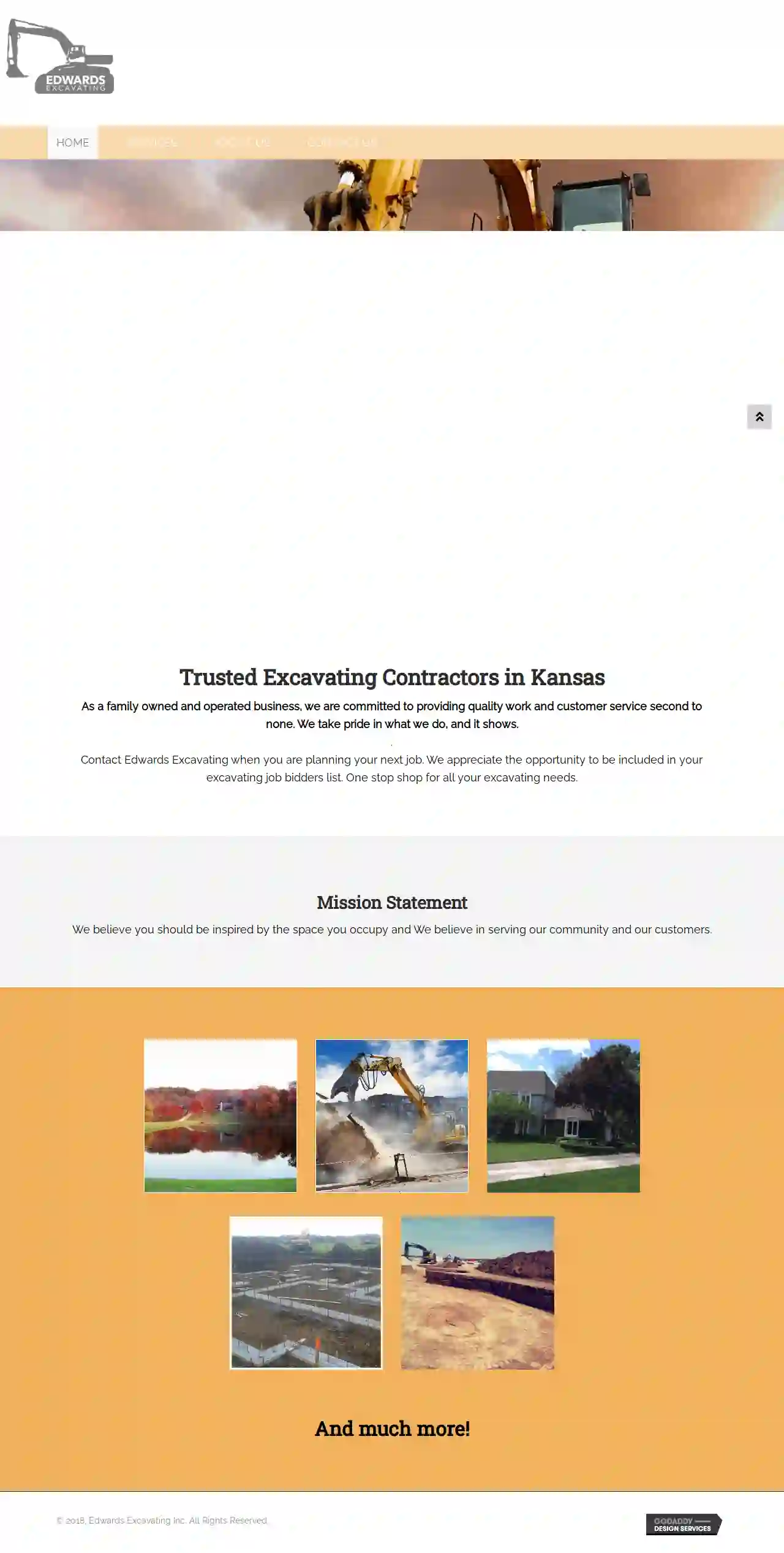
Edwards Excavating
54 reviewsHouston, USEdwards Excavating: Your Trusted Excavating Partner in Kansas As a family-owned and operated business, we're dedicated to delivering top-notch excavating services and exceptional customer care. We take immense pride in our work, and it shows in every project we undertake. When you're planning your next excavating job, choose Edwards Excavating. We're eager to be part of your project and welcome the opportunity to be included in your bidders list. We're your one-stop shop for all your excavating needs. Our Mission We believe in creating spaces that inspire and in serving our community and valued customers.
- Services
- Why Us?
- Gallery
Get Quote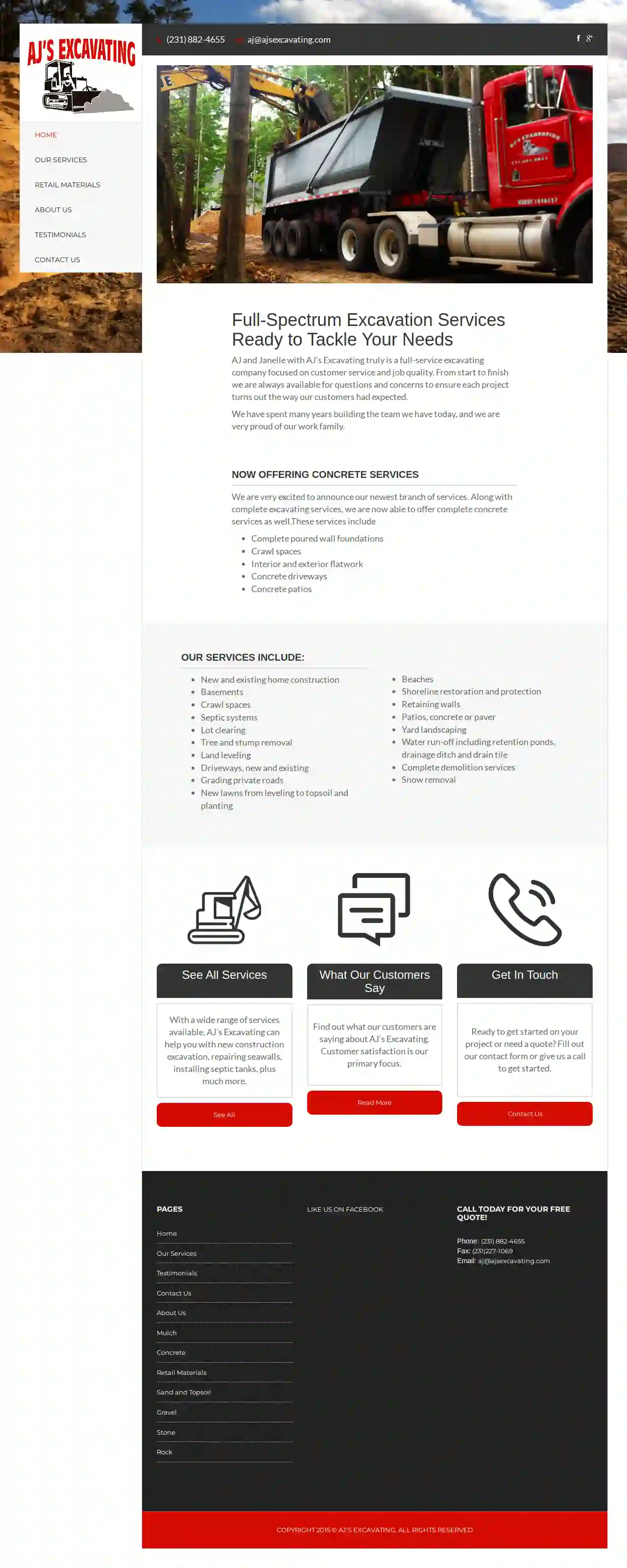
AJ's Excavating
4.846 reviews9777 Honor Highway, Honor, 49640, USFull-Spectrum Excavation Services Ready to Tackle Your Needs AJ and Janelle with AJ’s Excavating truly is a full-service excavating company focused on customer service and job quality. From start to finish we are always available for questions and concerns to ensure each project turns out the way our customers had expected. We have spent many years building the team we have today, and we are very proud of our work family. Now Offering Concrete Services We are very excited to announce our newest branch of services. Along with complete excavating services, we are now able to offer complete concrete services as well.These services include Complete poured wall foundations Crawl spaces Interior and exterior flatwork Concrete driveways Concrete patios
- Services
- Why Us?
- Testimonials
- Gallery
Get Quote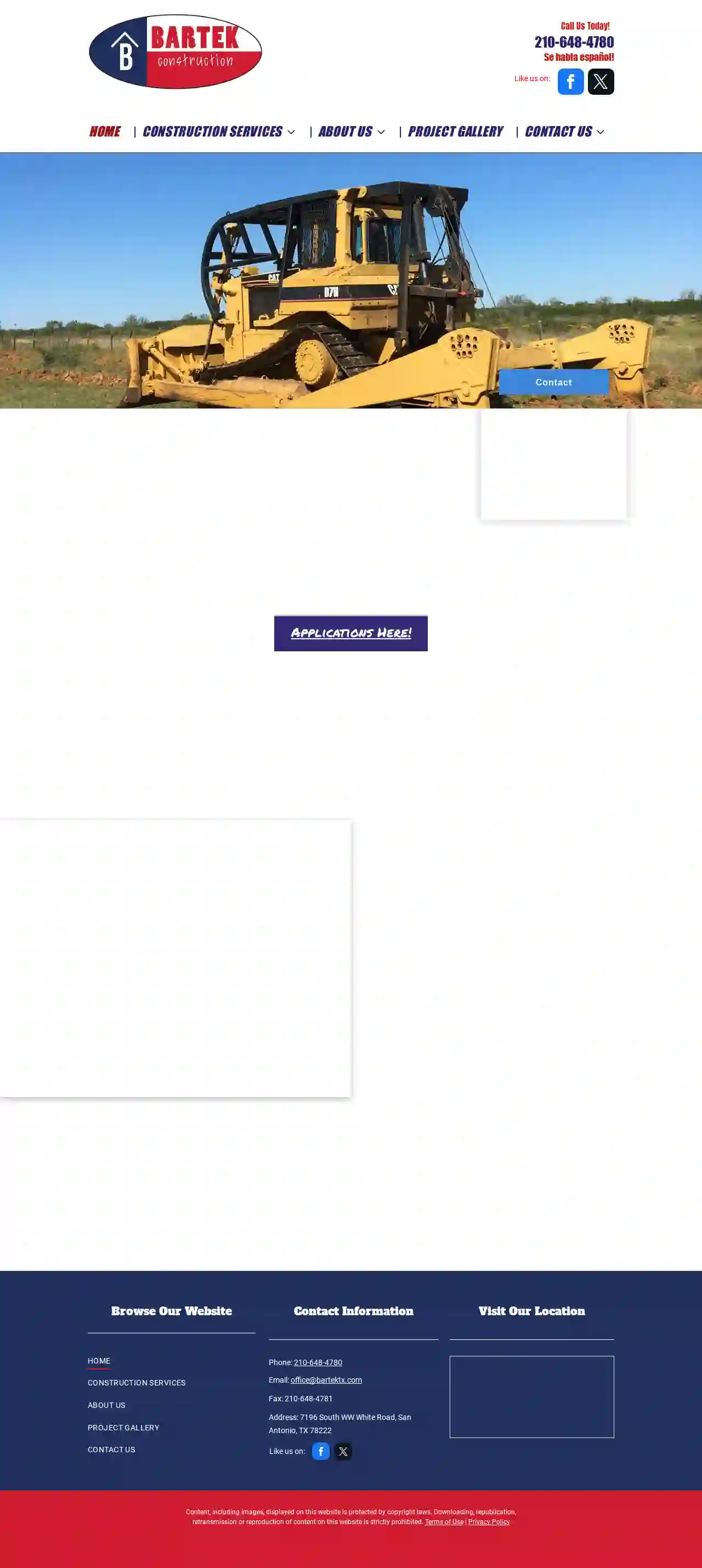
bartek construction
4.822 reviews7196 South WW White Road, San Antonio, TX, 78222, USServing Southcentral Texas for over 30 Years For the last 30 years, all across South and Central Texas, Bartek Construction has been one of the leading contractors for both commercial and residential projects. Bartek Construction provides a wide range of quality services, and you can rest assured that the job will be completed in a timely manner and up to the highest quality standards. From directional drilling, pipe fusing or general ranchland enhancement, Bartek construction will be sure to provide a professional and cost-effective service that best suits your needs. Where We Excel Being a trusted company since the 1980s Serving South and Central Texas One of the First Contractors in the Area to Offer Underground Directional Boring, High-Density Polyethylene (HDPE) Pipe Fusing and Subsurface Utility Engineering Multiple Directional Boring Crews Who Can Accommodate a Variety of Pipe Sizes and Soil Conditions Our Machines Are Capable of the Most Extreme Soil Conditions Timely and Cost-Effective Services Ensuring Your Project Stays On Schedule Bartek Construction has proven itself among engineering firms and utility service providers by providing quality work since the 1980s. The company has remained on the cutting edge of the communications market and expanded to meet the ever-growing needs of the industry. Bartek Construction was one of the first contractors in the area to offer high-density polyethylene (HDPE) pipe fusing, underground directional boring and most recently, subsurface utility engineering. Bartek Construction has seen a steady growth because of sound business practices combined with generations of leadership and decades of experience. It is the company’s goal to offer quality construction in a cost-effective and timely manner.
- Services
- Why Us?
- Accreditations
- Our Team
- Gallery
Get Quote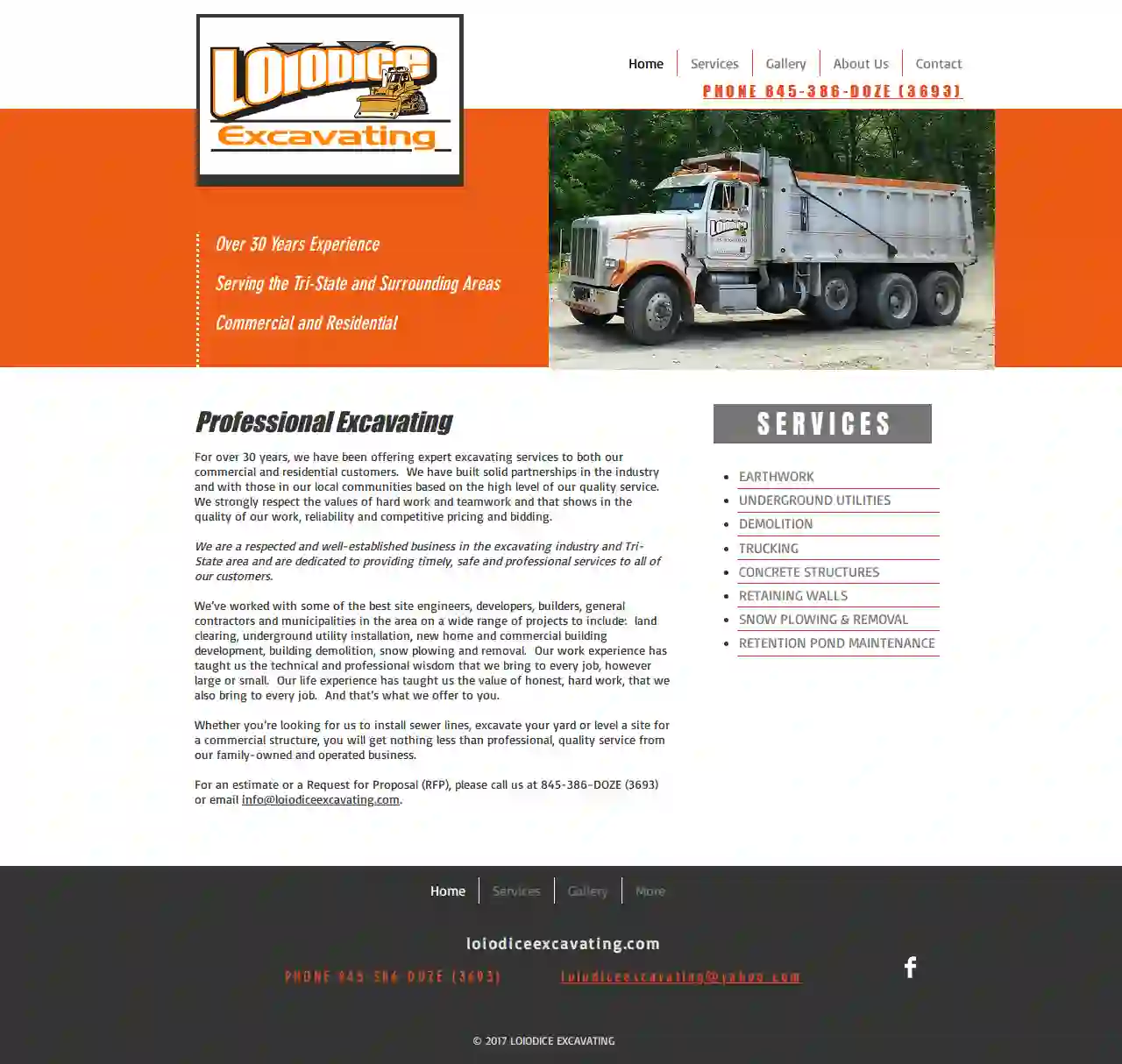
Loiodice Excavating
51 reviewsAllen, USOver 30 Years Experience Serving the Tri-State and Surrounding Areas Commercial and Residential Professional Excavating For over 30 years, we have been offering expert excavating services to both our commercial and residential customers. We have built solid partnerships in the industry and with those in our local communities based on the high level of our quality service. We strongly respect the values of hard work and teamwork and that shows in the quality of our work, reliability and competitive pricing and bidding. We are a respected and well-established business in the excavating industry and Tri-State area and are dedicated to providing timely, safe and professional services to all of our customers. We’ve worked with some of the best site engineers, developers, builders, general contractors and municipalities in the area on a wide range of projects to include: land clearing, underground utility installation, new home and commercial building development, building demolition, snow plowing and removal. Our work experience has taught us the technical and professional wisdom that we bring to every job, however large or small. Our life experience has taught us the value of honest, hard work, that we also bring to every job. And that’s what we offer to you. Whether you’re looking for us to install sewer lines, excavate your yard or level a site for a commercial structure, you will get nothing less than professional, quality service from our family-owned and operated business. For an estimate or a Request for Proposal (RFP), please call us at 845-386-DOZE (3693) or email [email protected] .
- Services
- Why Us?
- Gallery
Get Quote
CONSTRUTEXAS, LLC
52 reviews1901 Nw Military Hwy Suite 104, San Antonio, 78213, USAbout us Construtexas is a Texas company that offers construction services in San Antonio and Central Texas area. Our partners have over 20 years of experience in the construction industry. Furthermore, we are committed to employing an experienced staff to provide a high level of quality and the best consumer service. We know that success is the result of opportunity plus preparation. We are prepared, just give us the opportunity to serve you.
- Services
- Why Us?
- Gallery
Get Quote
Avila’s Heavy Machinery
53 reviews3912 W Rogers Rd, Edinburg, 78541, USAvila’s Heavy Machinery Specializing in land clearing services in the Rio Grande Valley, AVILA's Heavy Machinery boasts top-notch equipment and experience to efficiently clear any type of terrain. About Us At AVILA's Heavy Machinery, we are a trusted land clearing company serving the Rio Grande Valley and surrounding areas. With our fleet of powerful equipment and skilled team, we specialize in clearing land quickly and efficiently for various projects. Our commitment to customer satisfaction drives us to deliver exceptional results every time.
- Services
- Why Us?
- Testimonials
- Gallery
Get Quote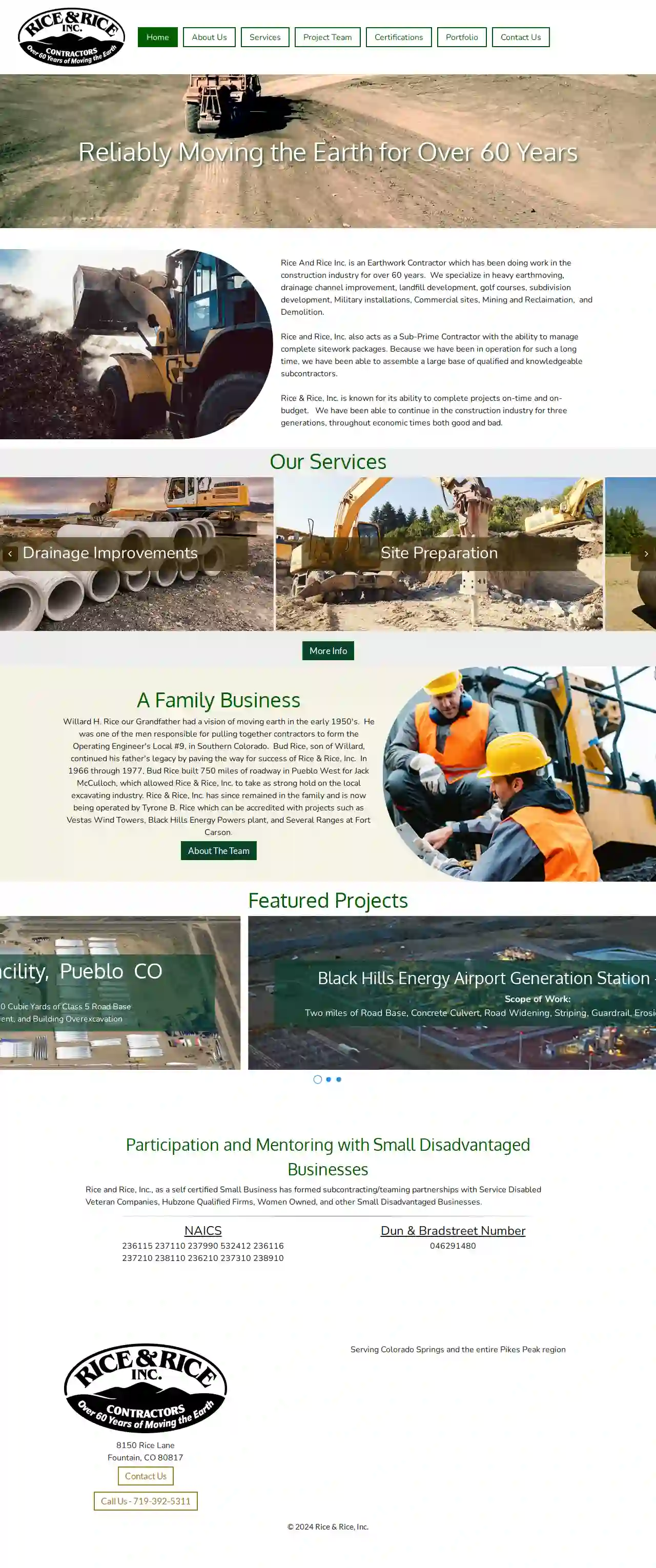
Rice & Rice Inc
52 reviews8150 Rice Lane, Fountain, 80817, USReliably Moving the Earth for Over 60 Years Rice And Rice Inc. is an Earthwork Contractor which has been doing work in the construction industry for over 60 years. We specialize in heavy earthmoving, drainage channel improvement, landfill development, golf courses, subdivision development, Military installations, Commercial sites, Mining and Reclaimation, and Demolition. Rice and Rice, Inc. also acts as a Sub-Prime Contractor with the ability to manage complete sitework packages. Because we have been in operation for such a long time, we have been able to assemble a large base of qualified and knowledgeable subcontractors. Rice & Rice, Inc. is known for its ability to complete projects on-time and on-budget. We have been able to continue in the construction industry for three generations, throughout economic times both good and bad. A Family Business Willard H. Rice our Grandfather had a vision of moving earth in the early 1950's. He was one of the men responsible for pulling together contractors to form the Operating Engineer's Local #9, in Southern Colorado. Bud Rice, son of Willard, continued his father's legacy by paving the way for success of Rice & Rice, Inc. In 1966 through 1977, Bud Rice built 750 miles of roadway in Pueblo West for Jack McCulloch, which allowed Rice & Rice, Inc. to take as strong hold on the local excavating industry. Rice & Rice, Inc. has since remained in the family and is now being operated by Tyrone B. Rice which can be accredited with projects such as Vestas Wind Towers, Black Hills Energy Powers plant, and Several Ranges at Fort Carson.
- Services
- Why Us?
- Our Team
- Gallery
Get Quote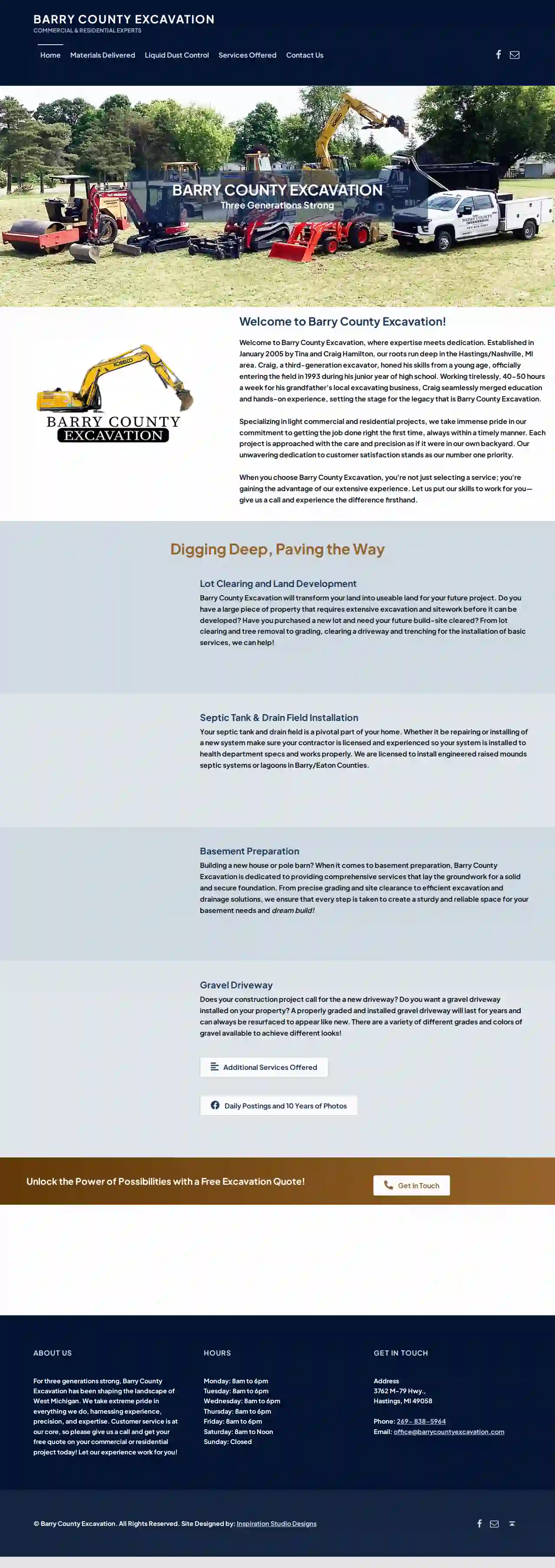
BARRY COUNTY EXCAVATION
514 reviews3762 M-79 Hwy., Hastings, 49058, USBarry County Excavation: Three Generations Strong Welcome to Barry County Excavation, where expertise meets dedication. Established in January 2005 by Tina and Craig Hamilton, our roots run deep in the Hastings/Nashville, MI area. Craig, a third-generation excavator, honed his skills from a young age, officially entering the field in 1993 during his junior year of high school. Working tirelessly, 40-50 hours a week for his grandfather's local excavating business, Craig seamlessly merged education and hands-on experience, setting the stage for the legacy that is Barry County Excavation. Specializing in light commercial and residential projects, we take immense pride in our commitment to getting the job done right the first time, always within a timely manner. Each project is approached with the care and precision as if it were in our own backyard. Our unwavering dedication to customer satisfaction stands as our number one priority. When you choose Barry County Excavation, you're not just selecting a service; you're gaining the advantage of our extensive experience. Let us put our skills to work for you—give us a call and experience the difference firsthand.
- Services
- Why Us?
- Our Team
- Testimonials
- Gallery
Get Quote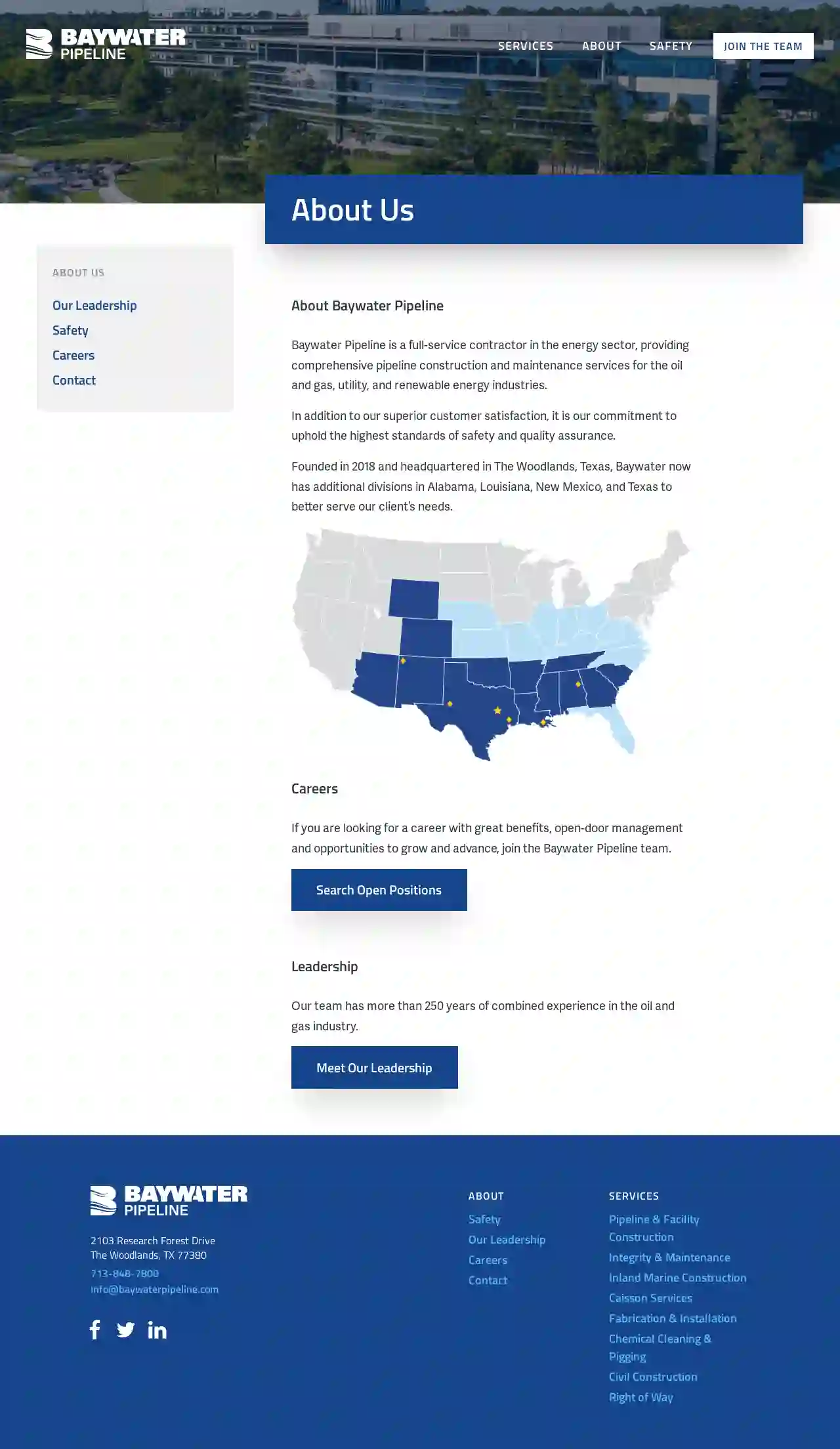
Baywater Pipeline
57 reviews2103 Research Forest Drive, The Woodlands, 77380, USAbout Baywater Pipeline Baywater Pipeline is a full-service contractor in the energy sector, providing comprehensive pipeline construction and maintenance services for the oil and gas, utility, and renewable energy industries. In addition to our superior customer satisfaction, it is our commitment to uphold the highest standards of safety and quality assurance. Founded in 2018 and headquartered in The Woodlands, Texas, Baywater now has additional divisions in Alabama, Louisiana, New Mexico, and Texas to better serve our client’s needs. Careers If you are looking for a career with great benefits, open-door management and opportunities to grow and advance, join the Baywater Pipeline team. Leadership Our team has more than 250 years of combined experience in the oil and gas industry.
- Services
- Why Us?
- Gallery
Get Quote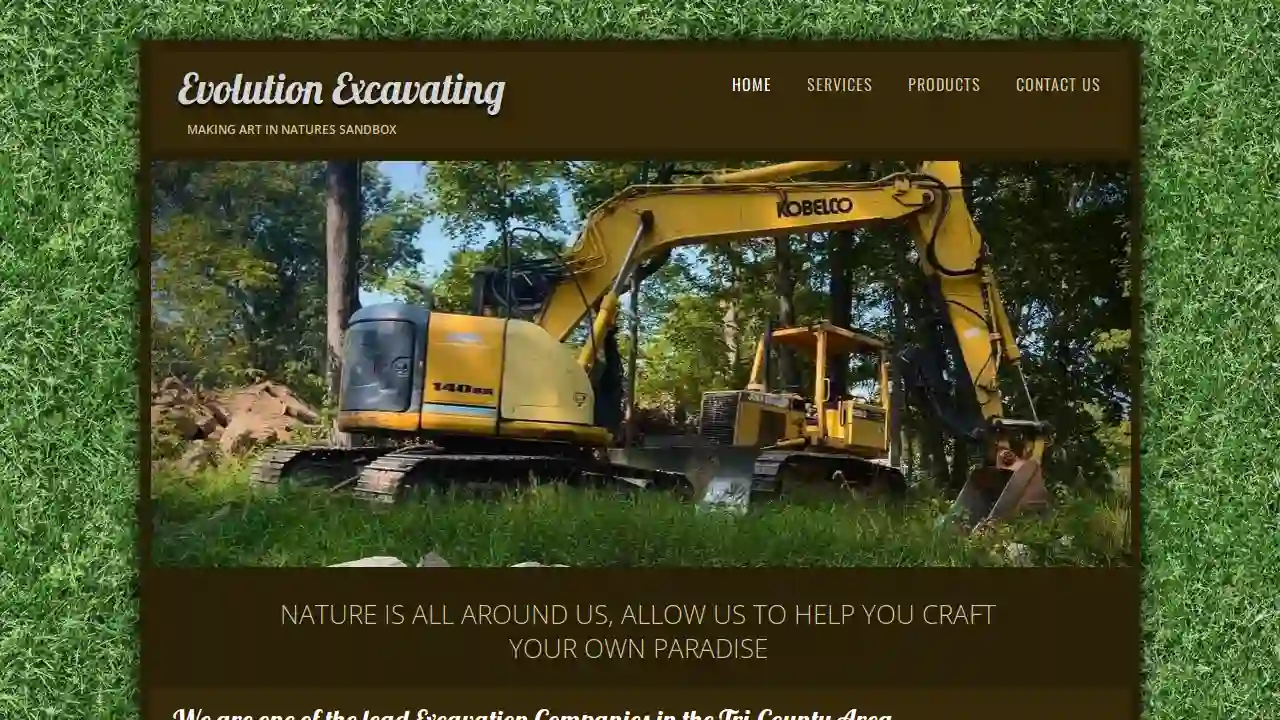
Evolution Excavating
52 reviews17 Rose Lane, Ulster Park, 12487, USEvolution Excavating: Crafting Your Outdoor Paradise At Evolution Excavating, we are passionate about transforming your property into the outdoor haven you've always dreamed of. We take pride in our local community and strive to deliver exceptional service with meticulous attention to detail on every project. We specialize in a wide range of excavating services, from driveway installation and repair to pond construction and land redesign. Our team of experienced professionals is dedicated to exceeding your expectations and creating a space that reflects your unique vision. We are proud to serve Ulster County, Dutchess County, and upper Orange County, including Kingston, Accord, Kerhonkson, Ulster Park, Port Ewen, Lake Katrine, New Paltz, Newburgh, Esopus, Port Ewen, St. Remy, Rhinebeck, Redhook, Wallkill, Saugerties, Woodstock, and High Falls. Let us help you create the outdoor oasis you deserve. Contact us today for a free consultation and let's discuss your project!
- Services
- Why Us?
- Gallery
Get Quote
Over 22,076+ Excavation Pros onboarded
Our excavation companies operate in Kaufman & beyond!
ExcavationHQ has curated and vetted Top Excavation Pros arround Kaufman. Find a reliable pro today.
Frequently Asked Questions About Demolition Contractors
- Size and Type of Structure: The method should be suitable for the structure's size, height, and construction materials.
- Site Location and Accessibility: The method should be feasible given the site's location, surrounding buildings, and access constraints.
- Environmental Considerations: Prioritize methods that minimize environmental impact, such as deconstruction or selective demolition if feasible.
- Budget: Different demolition methods have varying costs, so choose one that fits your budget.
- Safety: Prioritize methods that ensure worker safety and minimize risks to surrounding areas.
- Project Assessment: The demolition contractor evaluates the structure, site conditions, and project requirements.
- Permitting: Obtain necessary demolition permits from local authorities.
- Site Preparation: Secure the site, disconnect utilities, and remove any valuable or reusable items.
- Hazardous Material Abatement: Professionally remove asbestos, lead paint, or other hazardous materials if present.
- Demolition: Execute the chosen demolition method, bringing down the structure safely and efficiently.
- Debris Removal and Site Cleanup: Sort, process, and dispose of demolition debris responsibly. Clean up the site to prepare it for future use.
- Recycling: Concrete, brick, metal, and wood can be recycled and reused in other construction projects, reducing waste sent to landfills.
- Landfill Disposal: Non-recyclable materials are disposed of in designated landfills according to local regulations.
- Donation: Some materials, such as fixtures or appliances, may be suitable for donation to charitable organizations.
- Safety: Experienced contractors have the knowledge, skills, and safety training to execute demolitions safely, minimizing risks to workers and surrounding areas.
- Efficiency: Contractors have the specialized equipment and expertise to complete demolitions efficiently, saving time and reducing project costs.
- Compliance: Reputable contractors are familiar with local regulations and permitting requirements, ensuring compliance and avoiding legal issues.
- Waste Management: Contractors have waste management plans to handle debris responsibly, including recycling and proper disposal.
- Liability Protection: Insured contractors protect you from financial responsibility for accidents or damages during the demolition process.
How do I choose the right demolition method for my project?
What are the steps involved in a typical demolition process?
What happens to the debris after demolition?
What are the benefits of hiring a professional demolition contractor?
How do I choose the right demolition method for my project?
- Size and Type of Structure: The method should be suitable for the structure's size, height, and construction materials.
- Site Location and Accessibility: The method should be feasible given the site's location, surrounding buildings, and access constraints.
- Environmental Considerations: Prioritize methods that minimize environmental impact, such as deconstruction or selective demolition if feasible.
- Budget: Different demolition methods have varying costs, so choose one that fits your budget.
- Safety: Prioritize methods that ensure worker safety and minimize risks to surrounding areas.
What are the steps involved in a typical demolition process?
- Project Assessment: The demolition contractor evaluates the structure, site conditions, and project requirements.
- Permitting: Obtain necessary demolition permits from local authorities.
- Site Preparation: Secure the site, disconnect utilities, and remove any valuable or reusable items.
- Hazardous Material Abatement: Professionally remove asbestos, lead paint, or other hazardous materials if present.
- Demolition: Execute the chosen demolition method, bringing down the structure safely and efficiently.
- Debris Removal and Site Cleanup: Sort, process, and dispose of demolition debris responsibly. Clean up the site to prepare it for future use.
What happens to the debris after demolition?
- Recycling: Concrete, brick, metal, and wood can be recycled and reused in other construction projects, reducing waste sent to landfills.
- Landfill Disposal: Non-recyclable materials are disposed of in designated landfills according to local regulations.
- Donation: Some materials, such as fixtures or appliances, may be suitable for donation to charitable organizations.
What are the benefits of hiring a professional demolition contractor?
- Safety: Experienced contractors have the knowledge, skills, and safety training to execute demolitions safely, minimizing risks to workers and surrounding areas.
- Efficiency: Contractors have the specialized equipment and expertise to complete demolitions efficiently, saving time and reducing project costs.
- Compliance: Reputable contractors are familiar with local regulations and permitting requirements, ensuring compliance and avoiding legal issues.
- Waste Management: Contractors have waste management plans to handle debris responsibly, including recycling and proper disposal.
- Liability Protection: Insured contractors protect you from financial responsibility for accidents or damages during the demolition process.